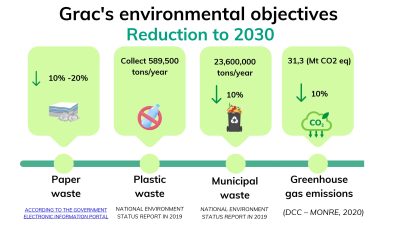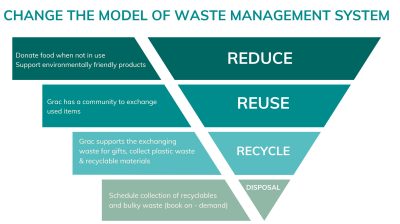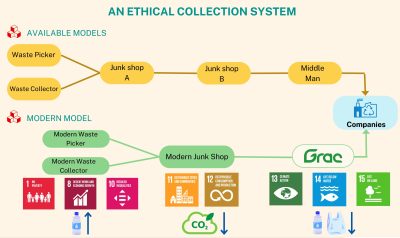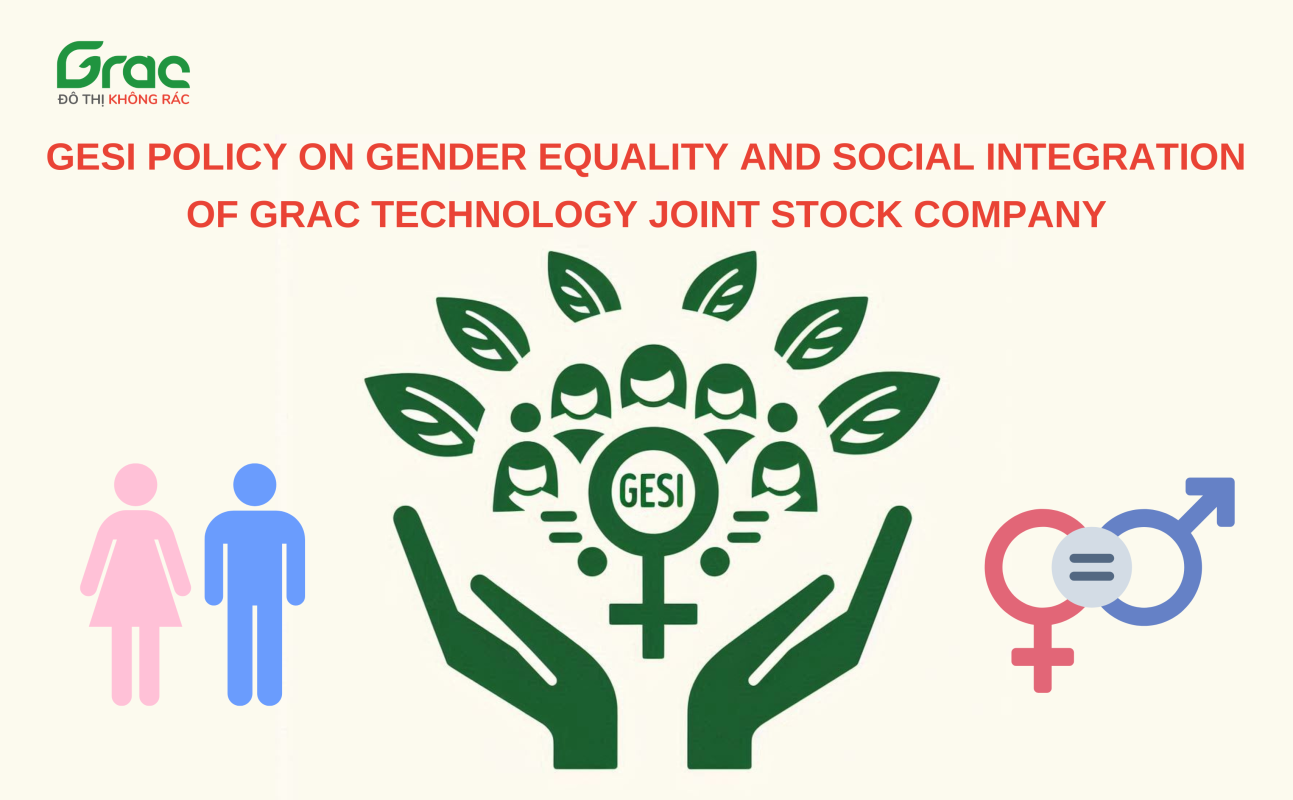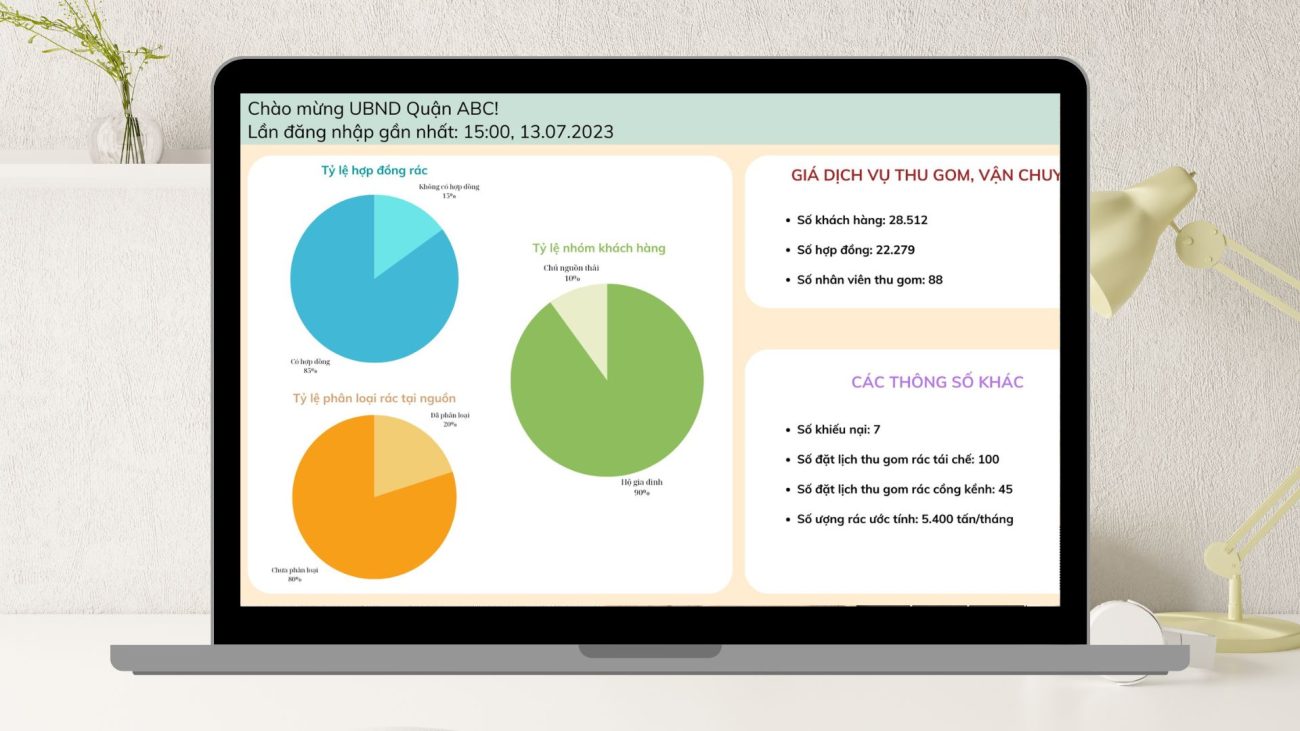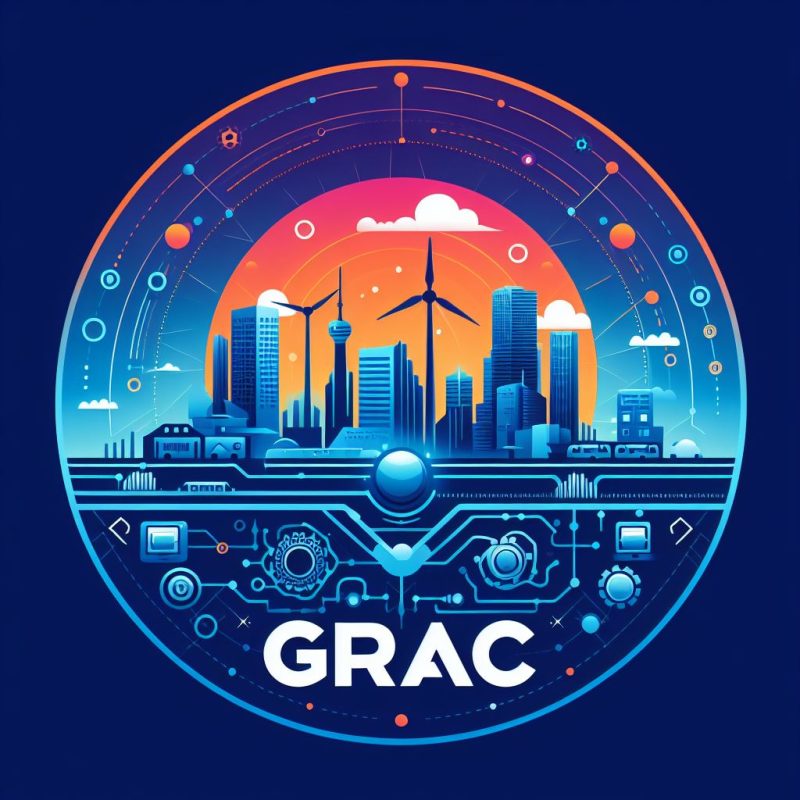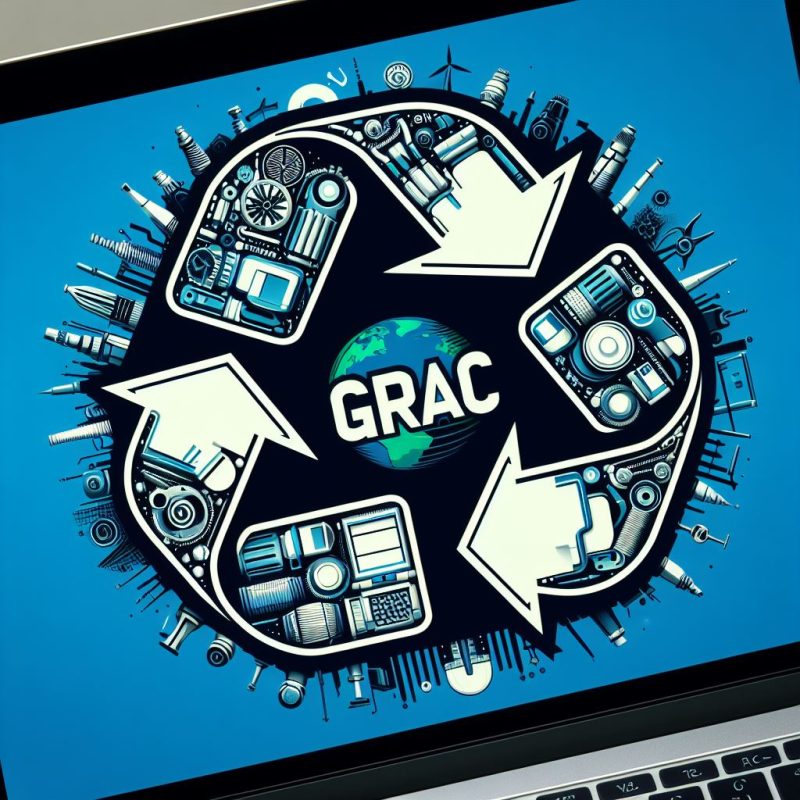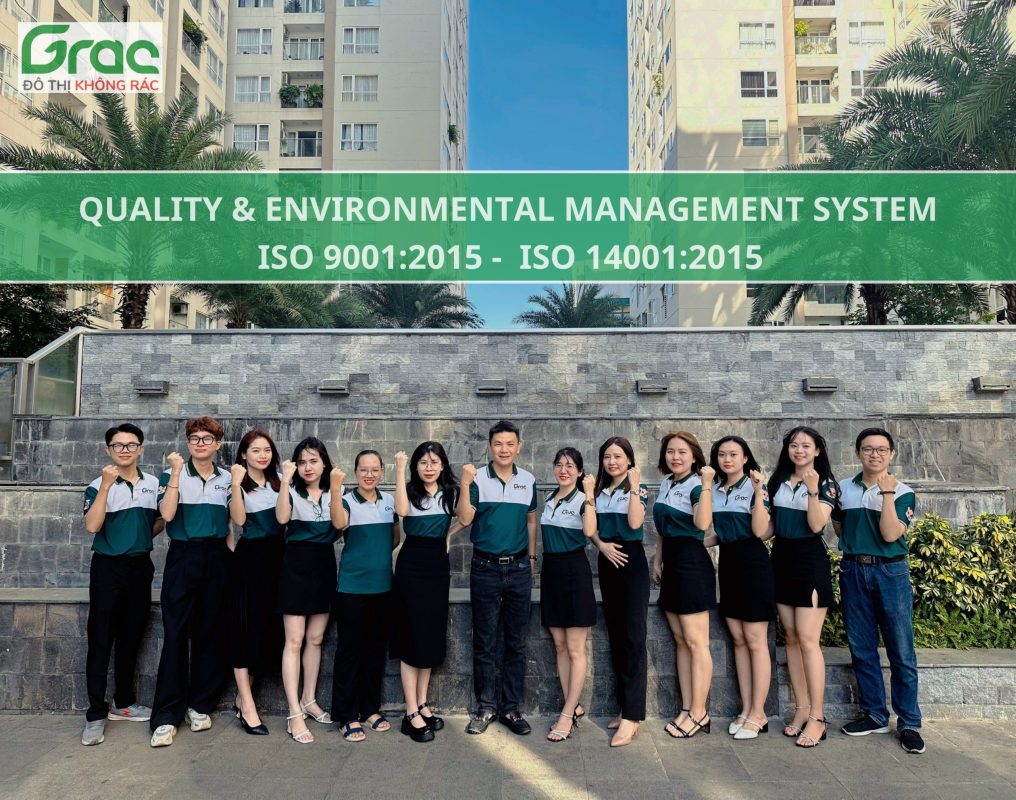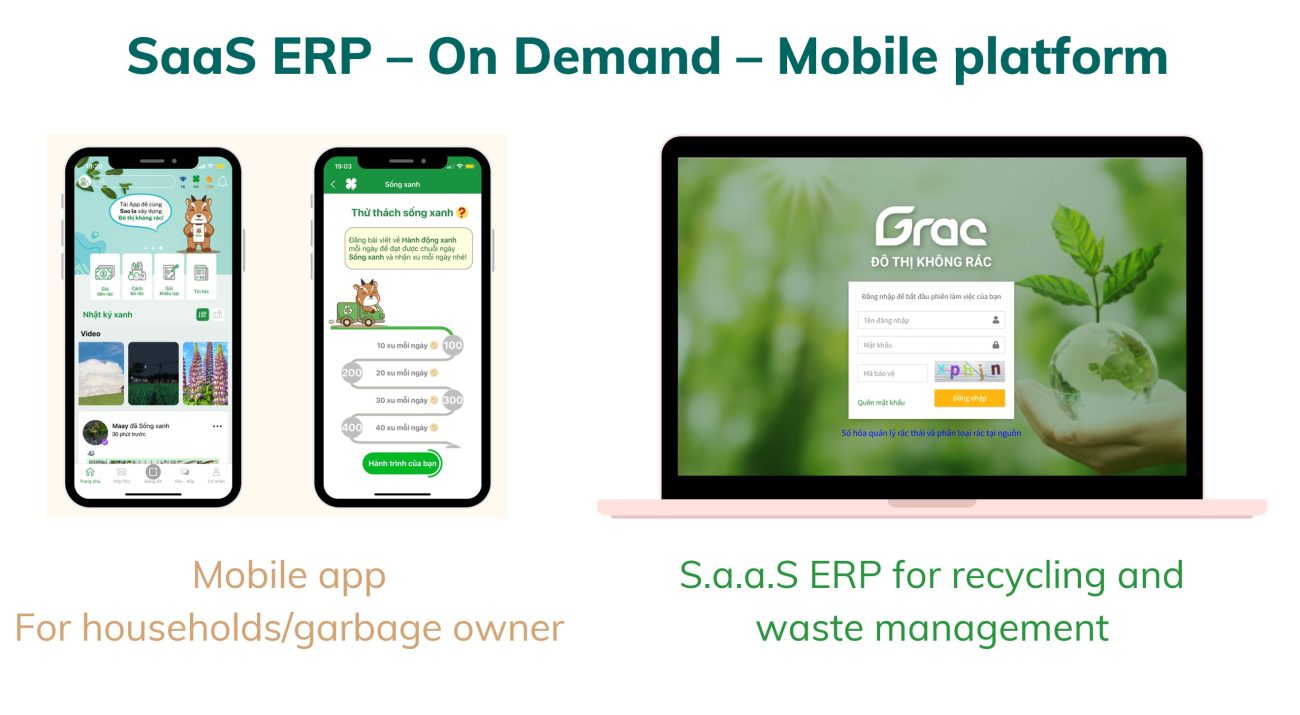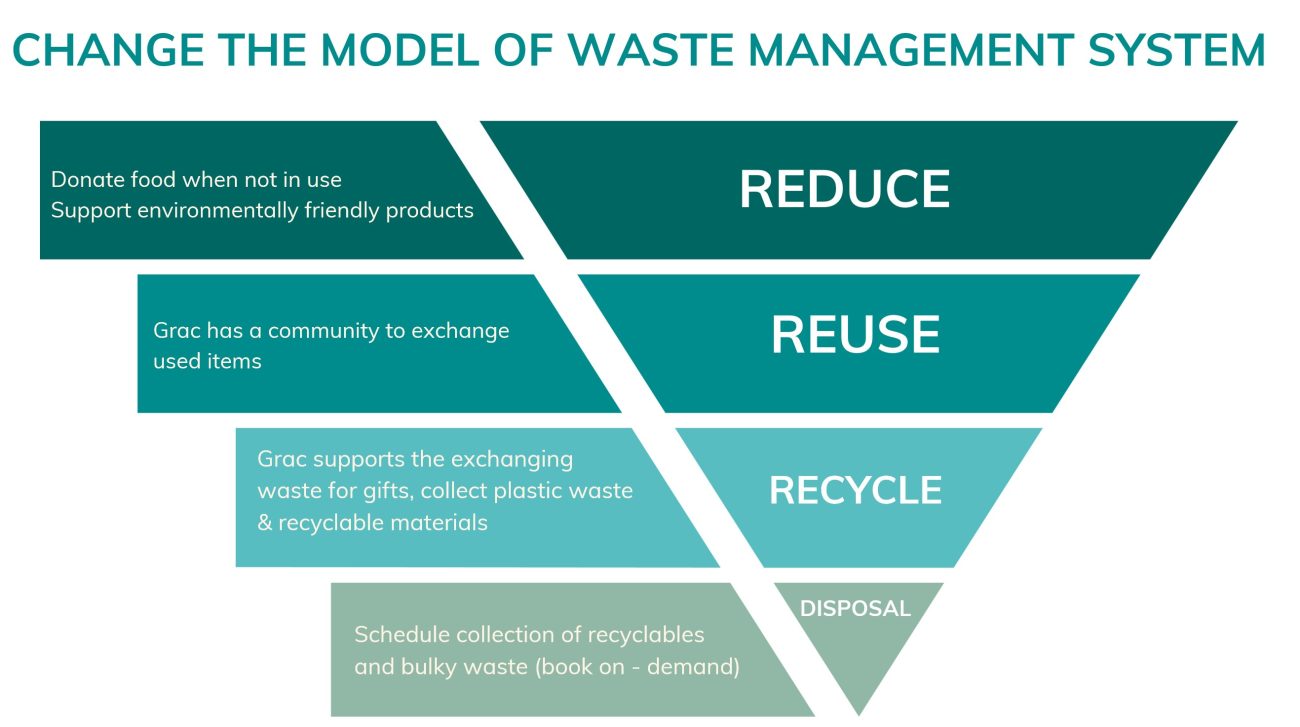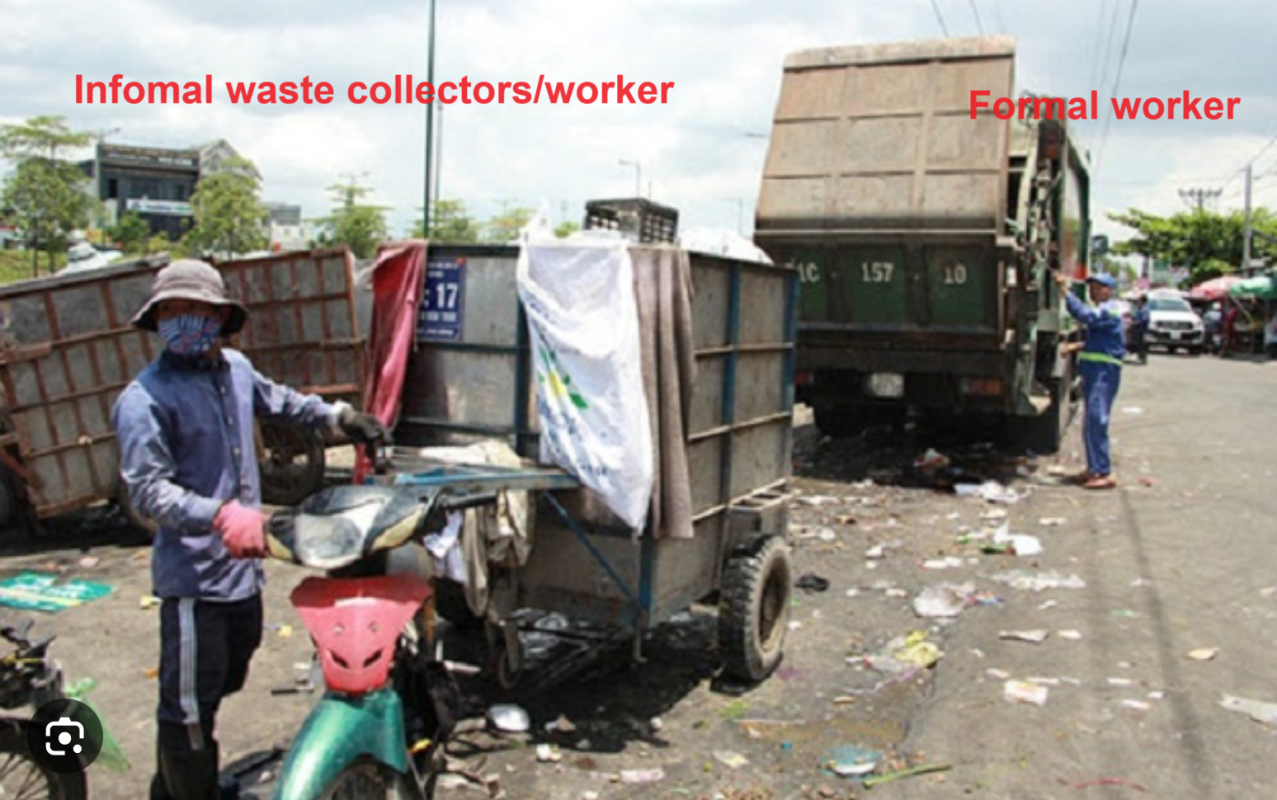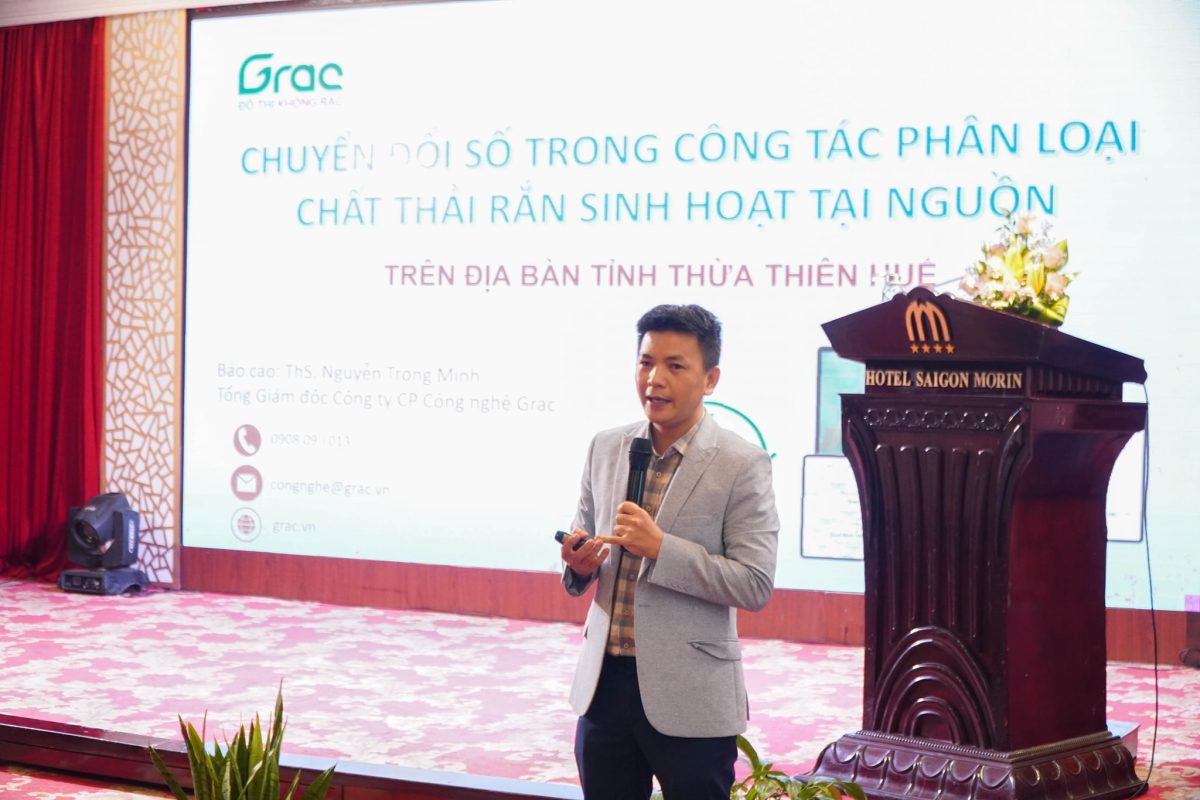Grac’s messages from 2024

Grac does not own the best technology, but we were born to design the most suitable waste management model in Vietnam and developing countries. We support digital transformation of waste including plastic waste, recyclable waste and other types of waste. Grac makes an important contribution to reducing waste, separating waste at source, reducing GHG emissions and building a circular economy.
GRAC’S GOALS:
- Expand digital transformation in cycling and waste management in Viet Nam.
- Reduce municipal waste emissions to the environment by building a circular economy network.
- Collect plastic waste and recyclable materials.
- Reduce greenhouse GHG emissions.
Digital Transformation in Waste Management: The GRAC Tech
Introduction
GRAC Technology Joint Stock Company, commonly known as GRAC Vietnam, is a technology company that provides software solutions and applications to help households and organizations protect the environment.
Products
Grac software and Grac app are products of GRAC Technology Joint Stock Company, a Vietnamese startup that provides smart solutions for waste management. Grac software is a SaaS ERP software that helps state management units and waste collection companies to digitalize their waste management processes, such as collection, treatment, and auditing. Grac app is a mobile app that connects households, waste collectors, and authorities in a digital platform. The app allows users to monitor, schedule, and pay for their waste collection services, as well as receive rewards for reducing and recycling waste. Grac software and Grac app aim to improve the efficiency, transparency, and sustainability of waste management in Vietnam and beyond.
The main difference between Grac software and Grac app is that they target different users and purposes. Grac software is designed for state management units and waste collection companies, who need to manage the waste collection and treatment processes. Grac app is designed for households, who need to monitor and pay for their waste collection services. Grac software and Grac app work together to create a smart and integrated waste management system.
GRAC Vietnam and Digital Transformation
GRAC Vietnam has been instrumental in promoting digital transformation in waste management. The company developed the Grac software and the Grac app, which is being used by local goverments and waste collectors to digitize waste management. This initiative is part of the city’s efforts to promote digital transformation in the collection, treatment, and management of the large volume of domestic solid waste discharged daily.
The traditional way of solid waste management has many limitations. The waste collection units mainly use books or excel to manage their data, which can lead to data loss and it is difficult to recover the loss. The ‘Grac’ tech addresses these issues, making data management more efficient and reliable.
Waste management is a pressing issue in many urban areas, especially in developing countries like Vietnam. According to the Ministry of Natural Resources and Environment, Vietnam generates about 29 million tons of solid waste annually, of which only 85% is collected and 24% is treated properly. The rest is either dumped in landfills or burned, causing environmental pollution and health hazards.
One of the pioneers in this field is GRAC Technology Joint Stock Company, a Vietnamese startup that provides smart solutions for waste management.
GRAC connects households, waste collectors and authorities in a digital platform. The software and the app allows users to monitor the amount and type of waste they produce, schedule waste collection, pay fees online, and receive rewards for reducing and recycling waste. Grac also helps waste collectors to optimize their routes, track their performance, and report any issues to the authorities. The app also provides data and analytics for the authorities to plan and evaluate waste management policies and programs.
GRAC has been piloted in several districts of HCM City since 2020, and has received positive feedback from the users. Grac has helped to increase the rate of waste collection and segregation, reduce the amount of waste sent to landfills, and enhance the transparency and accountability of waste management services.
GRAC is not only a technology company, but also a social enterprise that aims to create positive impacts for the society and the environment. The company has partnered with various stakeholders, such as local communities, schools, NGOs, and media, to raise awareness and educate the public about waste issues and solutions. The company also supports the livelihoods of waste collectors, who are often marginalized and vulnerable, by providing them with training, equipment, and incentives.
GRAC is one of the examples of how digital transformation can bring innovation and improvement to the waste management industry. By leveraging the power of technology, GRAC hopes to contribute to the sustainable development of Vietnam and the world.
Support for Climate Change
Climate change is a pressing issue that requires immediate action. The United Nations Environment Programme (UNEP) suggests several ways individuals can help fight the climate crisis. These include spreading the word about climate change, keeping up the political pressure, and transforming our transport systems.
The European Commission’s Eurobarometer survey shows strong support for action to tackle climate change and make Europe climate neutral. A majority of respondents agree that greenhouse gas emissions should be reduced to a minimum while offsetting the remaining emissions for a climate-neutral economy by 2050.
Grac is a technology company that supports the fight against climate change by reducing waste release. Grac provides software solutions and applications that help households and organizations manage their waste more effectively and efficiently. Grac promotes waste reduction, recycling, and the efficient use of resources, which are the principles of the circular economy. By doing so, Grac helps to lower greenhouse gas emissions and mitigate climate change impacts.
Building a Circular Economy
A circular economy is an economic system aimed at eliminating waste and the continual use of resources. It can be achieved through long-lasting design, maintenance, repair, reuse, remanufacturing, refurbishing, and recycling.
The World Economic Forum suggests several changes to how businesses run and how consumers live to build a circular economy. These include building ‘hubs’ for circular innovation, redesigning, producing, and using goods to eliminate waste, circulate materials, and regenerate nature.
Grac is a technology company that supports the circular economy in Vietnam. Grac provides software solutions and applications that help households and organizations manage their waste more effectively and efficiently. Grac promotes waste reduction, recycling, and the efficient use of resources, which are the principles of the circular economy. Grac also works with the government and other stakeholders to raise awareness and educate the public about waste issues and solutions.
Plastic waste
Grac supports plastic waste classification and collection in Vietnam. It connects licensed waste collectors and companies, has the potential to engage the informal sector, and holds waste collection data from 1,000,000 households. Grac is one of the digital solutions that can help address the plastic pollution problem in Vietnam and the region, by encouraging users to reduce and recycle their plastic waste and receive rewards for doing so. Grac also works with the government and other stakeholders to raise awareness and educate the public about waste issues and solutions.
Conclusion
The digital transformation in waste management led by GRAC Vietnam, along with global efforts to support climate change and build a circular economy, are crucial steps towards a sustainable future. These initiatives highlight the importance of innovation and collaboration in addressing environmental challenges.

